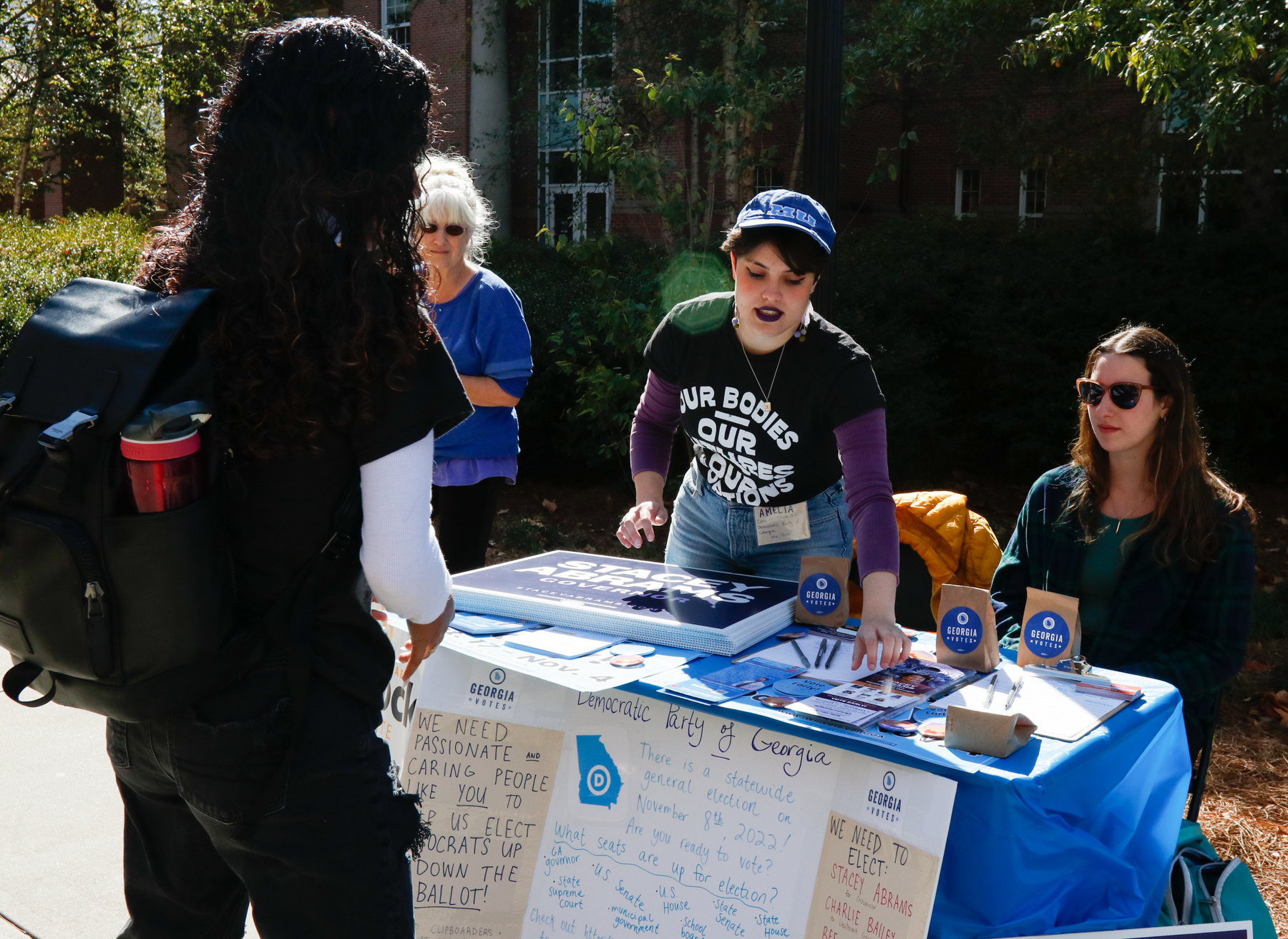Four former University of Georgia students have made a difference in the lives of homeless women in Athens-Clarke County. The group founded a nonprofit organization in 2015, (fem)me, that distributes feminine hygiene kits to organizations that provide services to the homeless population in Athens, Georgia.
Why It’s Newsworthy: Women make up 43 percent of the area’s homeless population, according to the Athens Clarke County Housing and Community Development Department. These women are faced with an additional expense every month: feminine hygiene products.
Julianne Geddis, the director of programs for the Athens Area Homeless Shelter, said that before getting involved with (fem)me, the shelter sometimes had to use its own funds to provide feminine hygiene products to its clients.
“It has just taken something off the list that we used to have to ask people for and spend money on,” said Geddis.
Heather Pieper, the student relations coordinator for (fem)me said the organization polled various groups that provide services to the homeless in Athens, to assess their need for feminine hygiene products for homeless women.
“The organizations that we polled from and asked about this issue, we now partner with and provide these supplies for…” said Pieper.
However, there are still portions of the Athens homeless populations whose needs aren’t being met, according to Pieper. Most of these include those who are living on the street, or in “tent cities.”
According to Athens Clarke County Housing and Community Development Department, about 22 percent of the homeless individuals and families counted in 2018 are unsheltered, or living in places “not meant for human habitation,” such as in cars or on the streets.
“We only work with families with kids, so it’s different from working with the street homeless population. I would imagine the access would be more difficult for that population like if you were sleeping in your car or in a tent,” said Geddis.
(fem)me does not deliver their feminine hygiene kits directly to tent cities, said Pieper. However, they do go to tent cities to tell people where they can go to get a hygiene kit. Anyone can come to one of (fem)me’s partner organizations, and no one can be denied a hygiene kit for any reason.
That is something that our partners have to agree to work with us- that they won’t deny anyone asking for a kit for any reason,” said Pieper.
(fem)me’s research has found that lack of access to feminine hygiene products has led to a variety of setbacks. Some women experience Toxic Shock Syndrome or yeast infections as a result of not having access to feminine hygiene products. Pieper said some people also experience mental setbacks such as major depressive episodes due to feelings of embarrassment or vulnerability. Women who don’t have access to feminine hygiene products may also have a difficult time gaining employment, because they aren’t able to present themselves to potential employers.
Pieper said that she would like to see (fem)me expand in its partnerships, by going beyond just organizations that work with the homeless population.
“I do know that this is still an issue and that we are not reaching everyone we need to reach at this point,” said Pieper. “What we are mainly working on at this point is expanding and figuring out how we can reach other people.”
Melanie Fincher is a fourth-year journalism and international affairs major in the Grady College of Journalism and Mass Communication at the University of Georgia.







